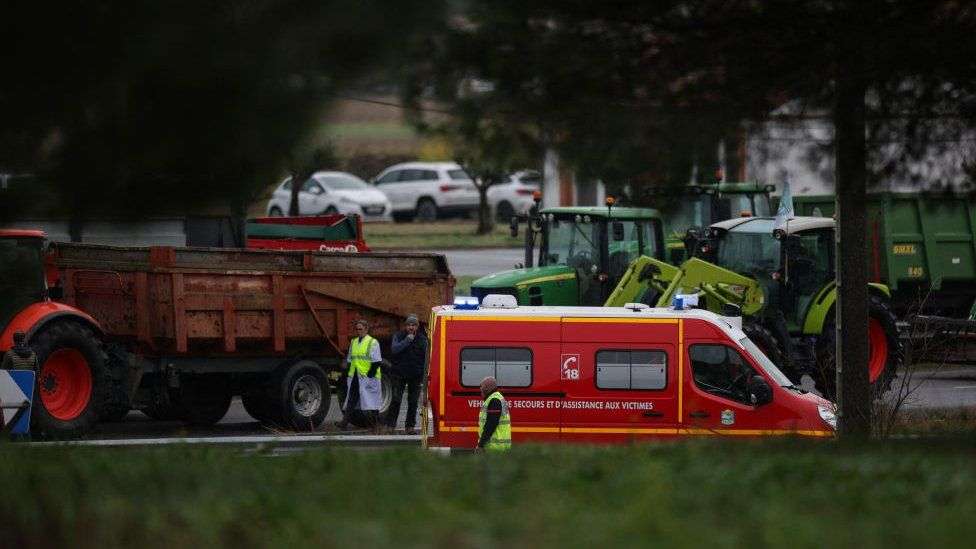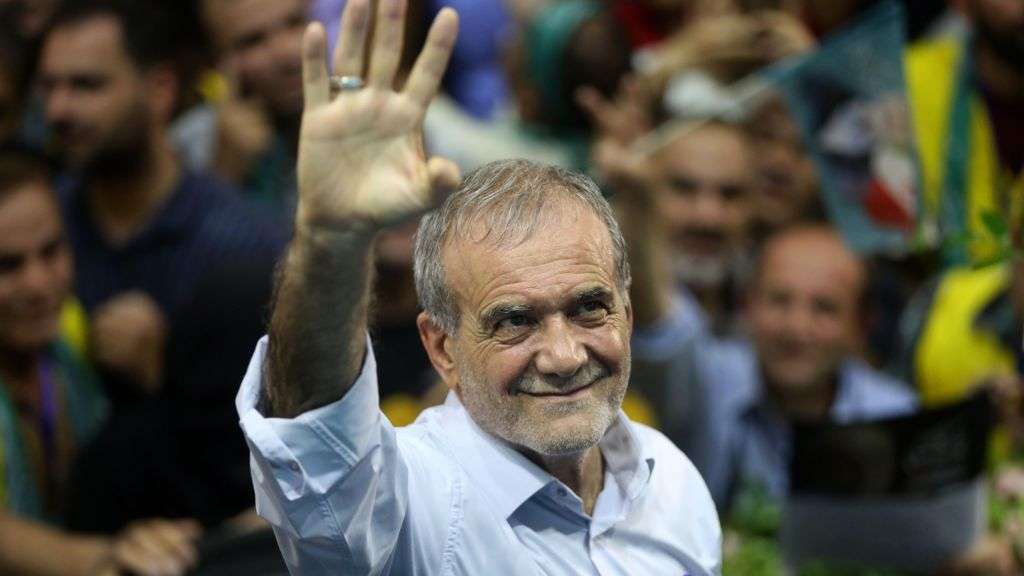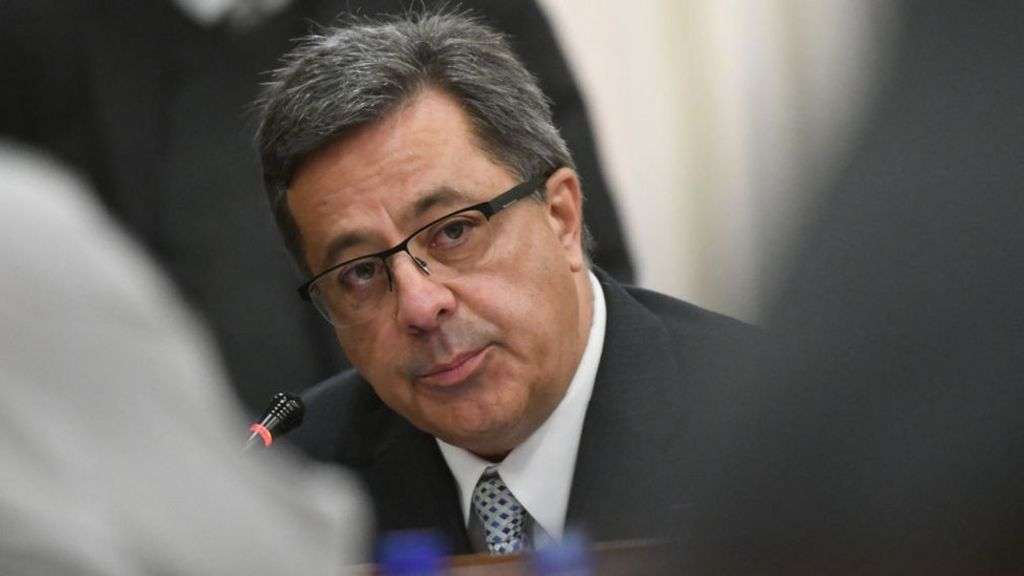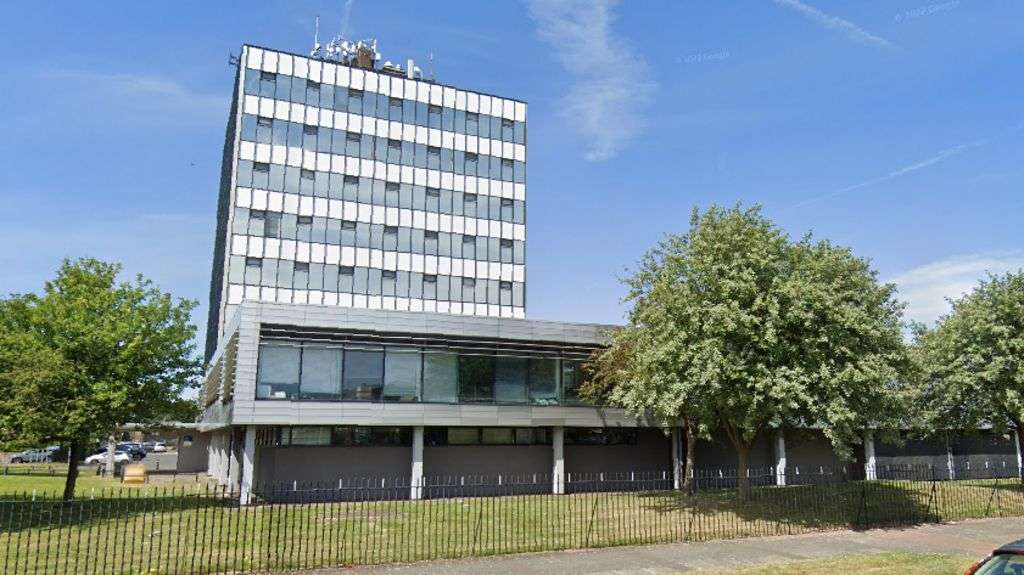A French farmer in her thirties and her 12-year-old daughter have died after a car crashed into a roadblock during a nationwide protest by French farmers.
The accident, which left the farmer's husband badly injured, happened an hour south of Toulouse as the protest grew.
Farmers have cut off key roads for days in the south-west, one of France's most important agricultural regions.
Early indications suggested the accident was not deliberate, the local prosecutor said.
Agriculture Minister Marc Fesneau said it was a "tragedy for all of us".
Tuesday's accident came as farmers across France expanded their roadblocks after a meeting with Prime Minister Gabriel Attal, to address complaints about new environmental regulations and rising energy costs.
Public prosecutors said the car "struck bales of straw and mowed down three people" while driving on a stretch of dual carriageway on the main N20 national route at Pamiers 70km (43 miles) south of Toulouse, while it was still dark at around 05:45 (04:45GMT) on Tuesday morning.
The farmer who died was named as Alexandra Sonac, 35, who bred cattle and grew corn on a farm in the nearby village of Saint-Felix-de-Tournegat.
Her 12-year-old daughter later died of her injuries in hospital. The farmer's husband, who is 40, is being treated in intensive care.
The three people in the car were all detained. They had reportedly been driving from Toulouse to Andorra, another two hours' drive to the south.
An investigation has been opened into aggravated manslaughter although local prosecutor Olivier Mouysset said the incident did not appear to be deliberate.
The young farmer who died was a member of the main FNSEA farmers' union, whose president Arnaud Rousseau said that "in this particular moment that [French] agriculture is dealing with, this kind of tragedy is difficult to cope with".
"I'd like to tell the people on the ground first of all that they have the full support of French farmers."
Ms Sonac, who had two children, told a local radio station earlier this week that her family was protesting to defend their profession.
"I've got two girls to look after and we live for them. We don't go on holiday, we don't get a day off," she told Radio Transparence.
As the farmers' protests spread across France, the head of the Jeunes Agriculteurs (Young Farmers) union, Arnaud Gaillot, said he had never seen such widespread determination.
"If necessary we'll blockade Paris... some [of our members] have nothing else to lose, their survival is at stake," he told RTL radio.
Tractors and lorries blocked the A7 motorway in south-east France, with the slogan "we're dying to feed you" daubed in red on one of the vehicles.
The most recent protests started in the south-west last week. Although it is one of the most important agricultural regions in the country, the FNSEA says farmers in this part of France have the lowest incomes within the profession.
They are already being nicknamed "gilets verts", or green jackets - a reference to the broader gilets jaunes civil protests that swept across France over rising fuel prices.
More than 400 tractors last week blocked the centre of Toulouse, home to around 800,000 people. Over recent days, several key motorways in the south west have been cut off entirely by farmers who have installed sleeping quarters in the middle of the highways.
Motorways were cut off on Tuesday between Toulouse and the Basque Country and Toulouse and Bordeaux. On Wednesday morning taxi drivers in Toulouse joined the strike in a show of support for the farmers.
Aware of how politically sensitive the situation is, the French interior minister said on Monday he would not order police to break up the blockades.
Prime Minister Gabriel Attal responded to news of the accident on Tuesday by paying tribute to the family and friends of those involved in the accident. The nation was "overwhelmed and united" and all of France's farmers were in mourning, he said on social media.








